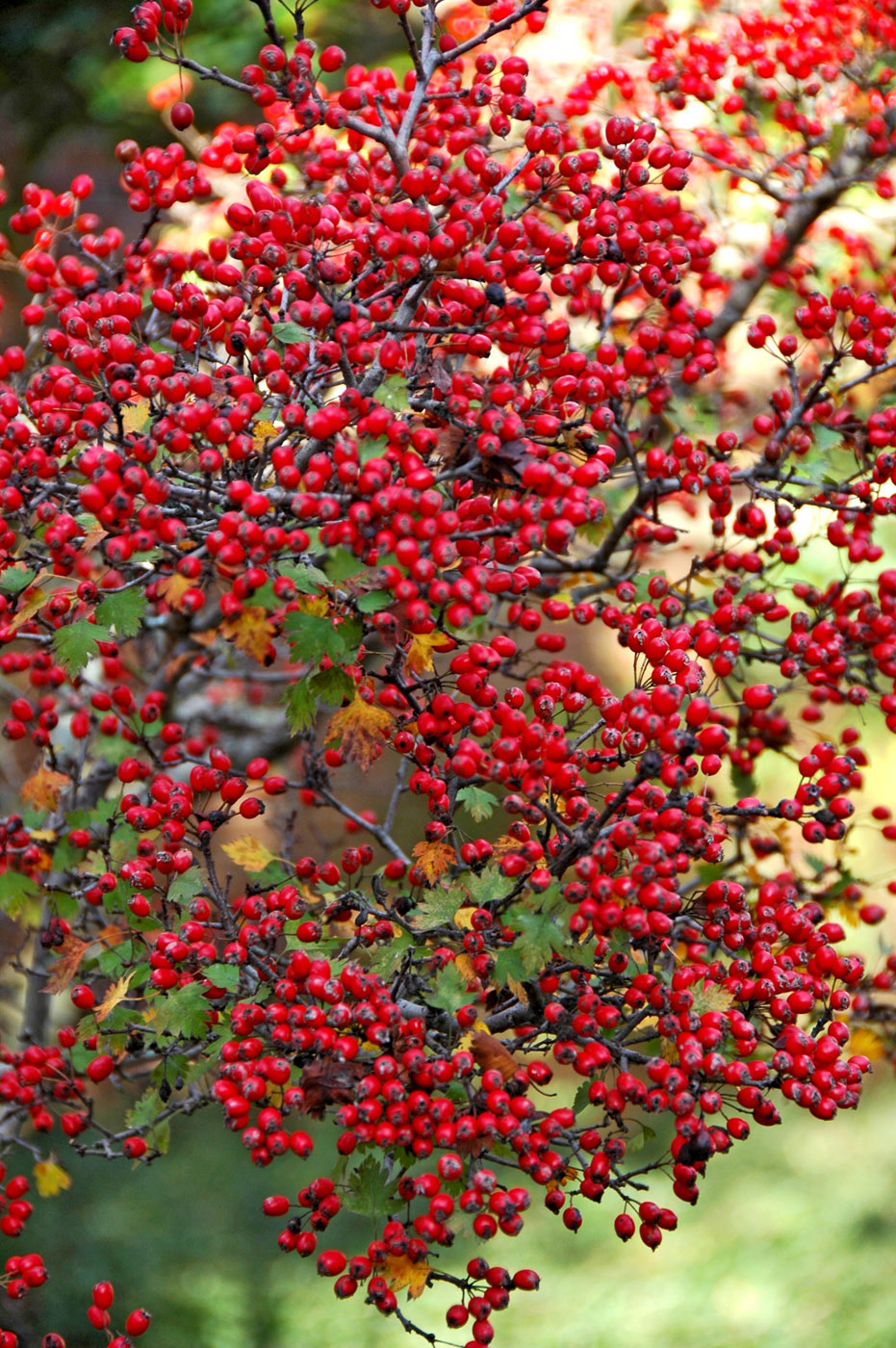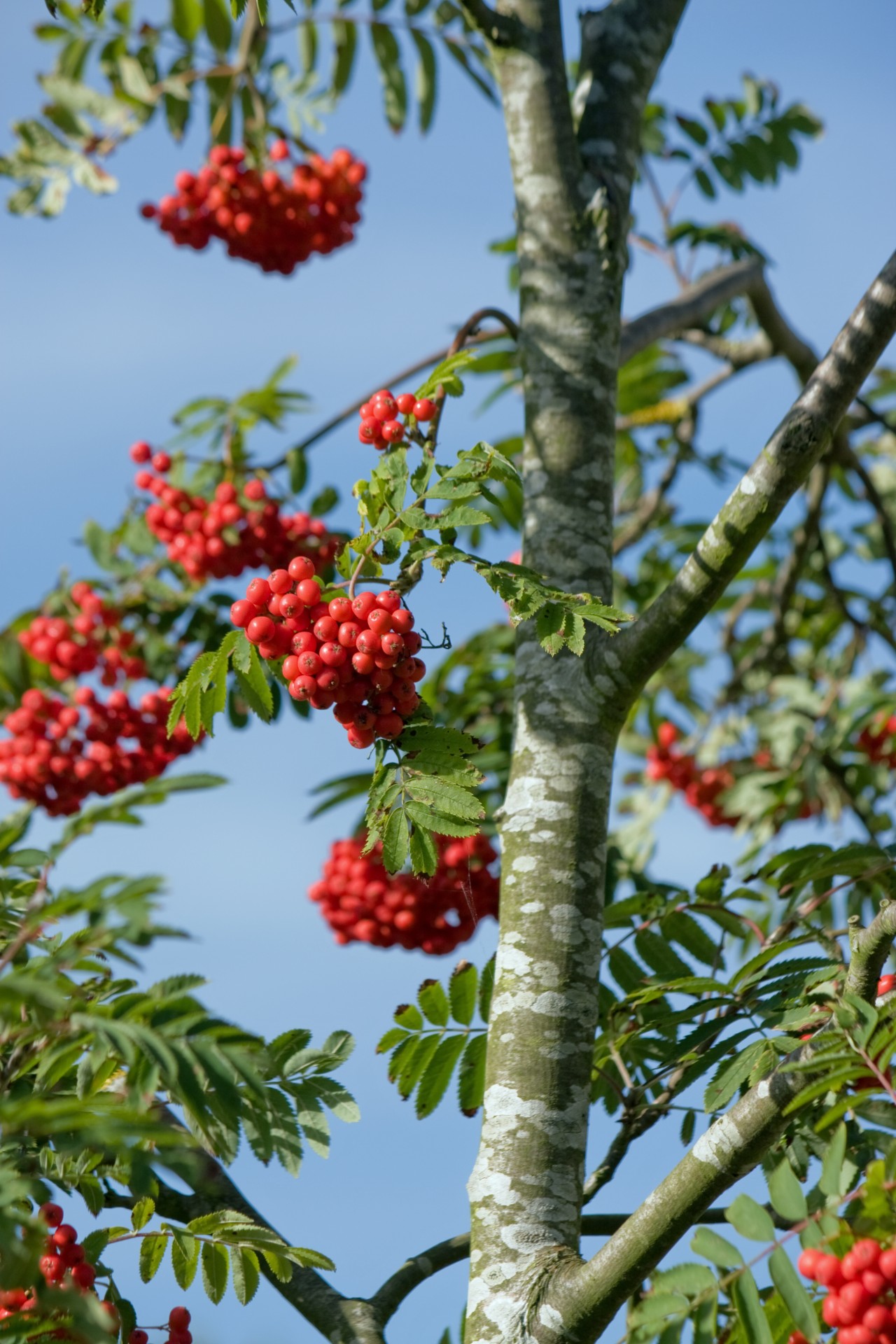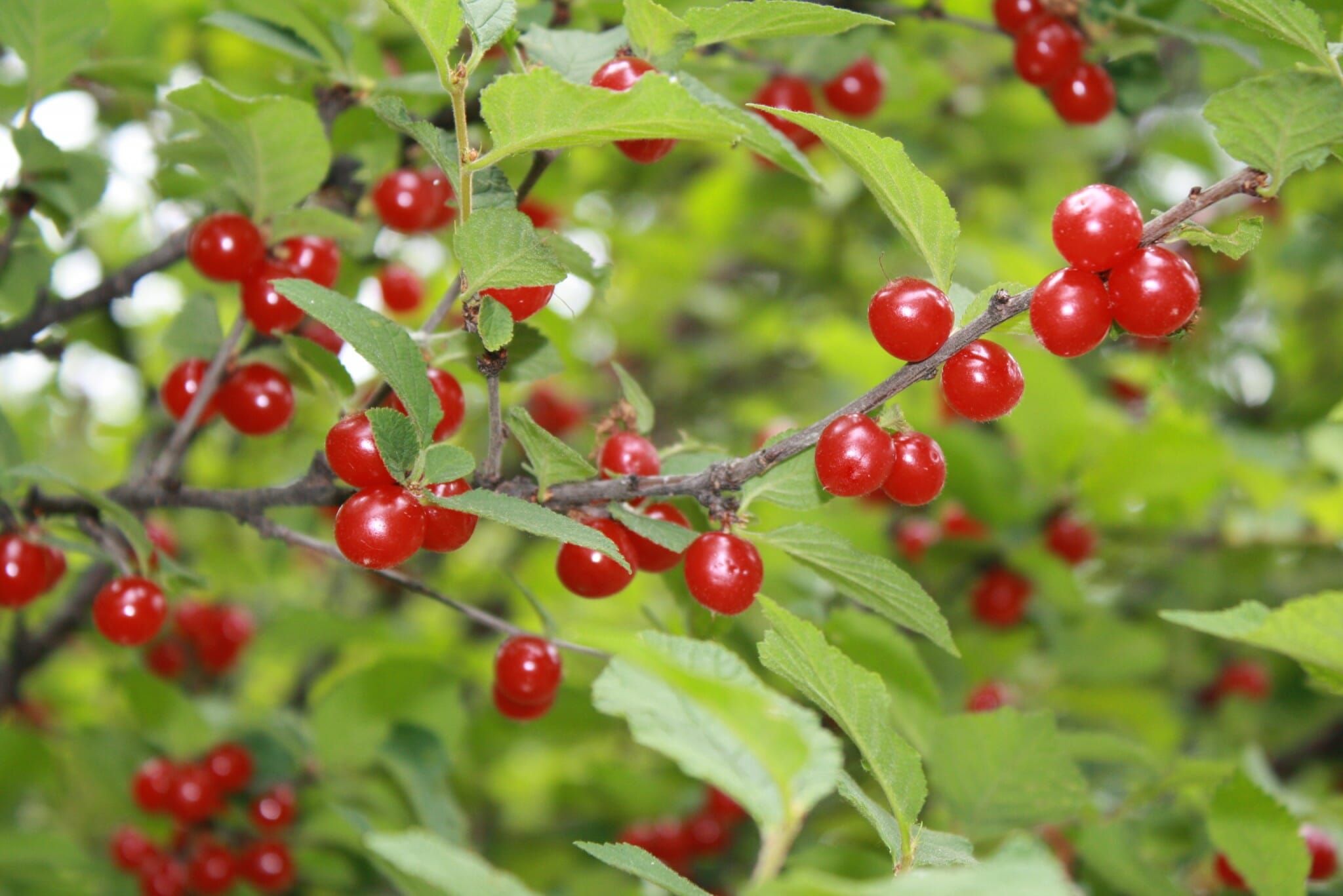
How to Identify a Tree with Red Berries White flowering trees, Red
Hawthorns are small trees with thorny branches that produce red berry-like fruits. Other common names for the hawthorn tree are hawberry, quickthorn, thornapple, and mayhaw. Hawthorns are thorny trees that grow in many countries that have a temperate climate. Depending on the species, hawthorns grow between 15 and 35 ft. (4.5 - 10.5 m) tall. The identifying features of hawthorns are short.

What is the name of this tree? Are the berries edible?
The white blooms give way to unique red berries. When adding this tree to your landscape, supply it with rich, well-draining soil and full to partial sunlight. This tree should remain hardy in planting zones eight and nine. 15. Peruvian Pepper Tree. Our last evergreen tree to discuss is the Peruvian pepper tree. This is a medium-sized tree with.

Cranberry Trying to identify this tree with red berries and ovate leaves
Red Berry Mistletoe (Viscum cruciatum) Red-berry Mistletoe (Viscum cruciatum) is a photosynthetic plant that lives on a variety of trees including oaks, fruit trees, and vines. These plants have leathery leaves that grow in opposite pairs, with 3-7 parallel veins running the length. They are 4-petaled, green, and very small, borne in small.

During the fall season you may see small trees with bright red berries
Red berries look cheerful on a winter day, sparkling in the sun or highlighted with a dusting of snow. Some trees and shrubs display beautiful fruits in late summer or fall, which persist into winter and attract hungry birds.. An ideal specimen tree for small gardens, Sorbus alnifolia (Korean Mountain Ash) is a small,. Add to Collection.
Small tree with red berries Harringay online
Red Berries That Grow on Trees. 6. American holly (Ilex opaca) resembles English holly, one of the most famous plants with red berries and green leaves. The leaves are glossy with sharp spines and the berries are a jolly shade of red. The tree can grow to 50 feet tall (16m.) in mild climates. 7. But that's not the only holly that qualifies.

Enjoy a native berry producer each winter Mississippi State
The queen of all evergreen shrubs with red berries is English (or common) holly! And you can train it into a tree too. The red clusters of fiery pearls ripen just in time for the Christmas season, and you will find them at the tips of the branches mixed in with the iconic leaves of this plant.

Red Berries On Tree Free Stock Photo Public Domain Pictures
Before harvesting and enjoying the red berries on a tree, however, it's important to ensure that the fruits are human-safe and tasty additions to the family kitchen. To identify a tree with red berries, consider the local U.S. Department of Agriculture plant hardiness zone, the size, growth pattern and environment, as well as the bark, leaves.

Red Berries on Tree · Free Stock Photo
In spring, this tree produces flowers in pretty purple shades that eventually give way to clusters of bright, shiny red berries. Surprisingly, it thrives when planted as a potted specimen on patios. When fully mature, this colorful berry tree can get to over 9 feet tall and 9 feet wide. 9. Bearberry Cotoneaster

Red Berries Edible or Not Edible?
A tree with red berries can be a beautiful and welcome sight in any garden or natural setting. However, many people are unsure how to identify a tree with red berries and may mistake it for something else entirely. In this article, we will help you learn how to identify a tree with red berries to enjoy its beauty without worry..

Tree with red berries in my yard? in the Plant ID forum
Planting a tree with berries will beautify your garden, provide birds with a place to roost and plenty to feast on, plus give you the pleasure of watching the birds in action too.. The red berries still appear in clusters in the same way on the branches. English holly (Ilex aquifolium) trees is another good choice as it can reach 30-50ft.

Red berries of Crataegus persimilis 'Prunifolia' in autumn Flowering
Red currants produce clusters of berries in shades of pale red to bright crimson or deep red, depending on the variety. Redcurrants bushes are usually grown as goblet-shaped bushes and normally have a height and spread of 1.5m (5′) and so are only suitable for big gardens or allotments. In spring, red currant flowers show a yellowish tint.

Small tree with red berries in SE Pennsylvania. Are these berries
One of the most appealing small trees with red berries in winter, the Cherry Tree produces a delectable fruit with beautiful flowers. Unlike the others mentioned on this list, Cherry trees ripen during the summer, but the tree's beautiful flowers herald the end of winter, indicating spring is on the way.

Red berries of viburnum in the forest free image download
Abundant clusters of shiny red berries emerge in late summer and remain through the fall and winter. Red Chokeberries like part shade or full sun and are hardy in zones 4 through 9. They grow slowly in a bushy, erect habit, reaching a mature height of 5 to 10 feet, with a 3 to 5-foot spread. They are deer, pest, and disease resistant.

Red berries on a tree
These trees with red berries tree stay green all year round. 23. Common Hackberry. Botanical Name: Celtis occidentalis. The common hackberry tree is a medium-sized tree that loses its leaves in the winter. It is famous for its round dark red to purple fruits. You can recognize the common hackberry by its round-shaped top with branches that.

Red Berries On Rowan Tree Free Stock Photo Public Domain Pictures
This tree produces red berries and displays bold colors during the fall. If you're interested in growing the eastern wahoo, be sure to plant in well-draining soil and light shade. The tree is hardy in planting zones three through nine. 11. Strawberry Tree. The strawberry tree is a petite tree that grows mid-size, circular red berries.
Trees with red berries. — Steemit
Spiky red berries are an unusual identifying trait of the evergreen strawberry tree. The spherical red berries have a rough surface and have a pleasant, sweet taste. The berries range in size from 0.3" to 0.8" (7 - 20 mm) and are ripe for eating in the fall, just when the plant begins to blossom again.